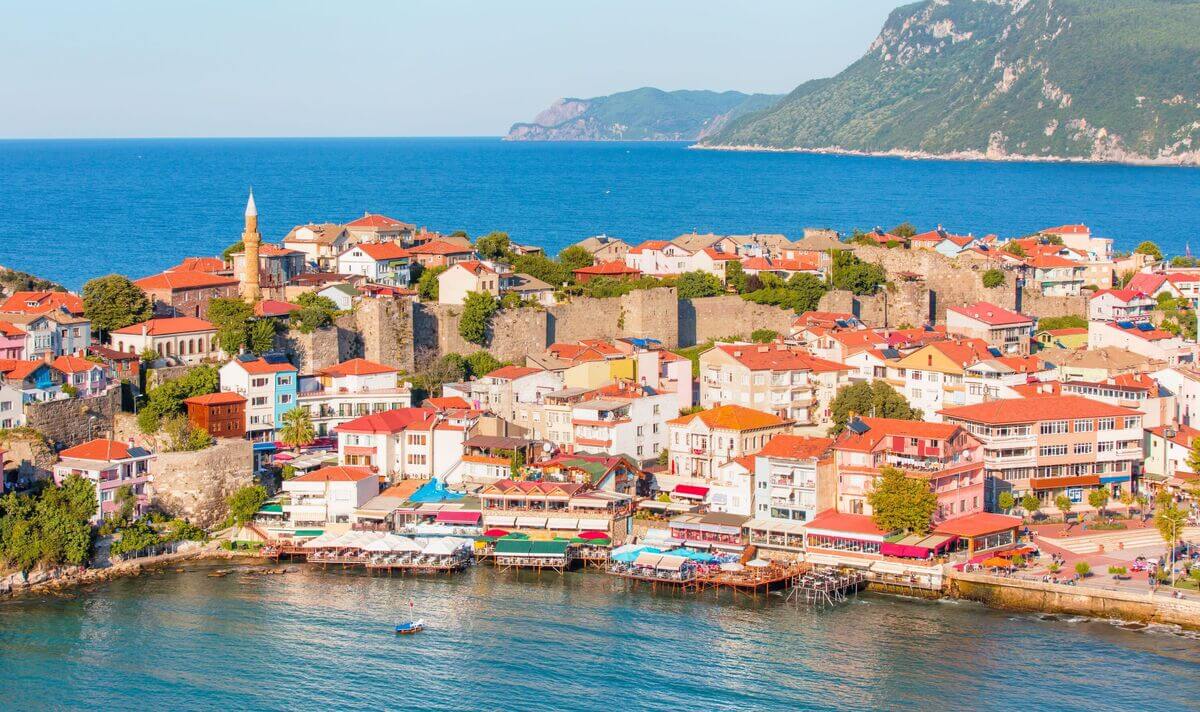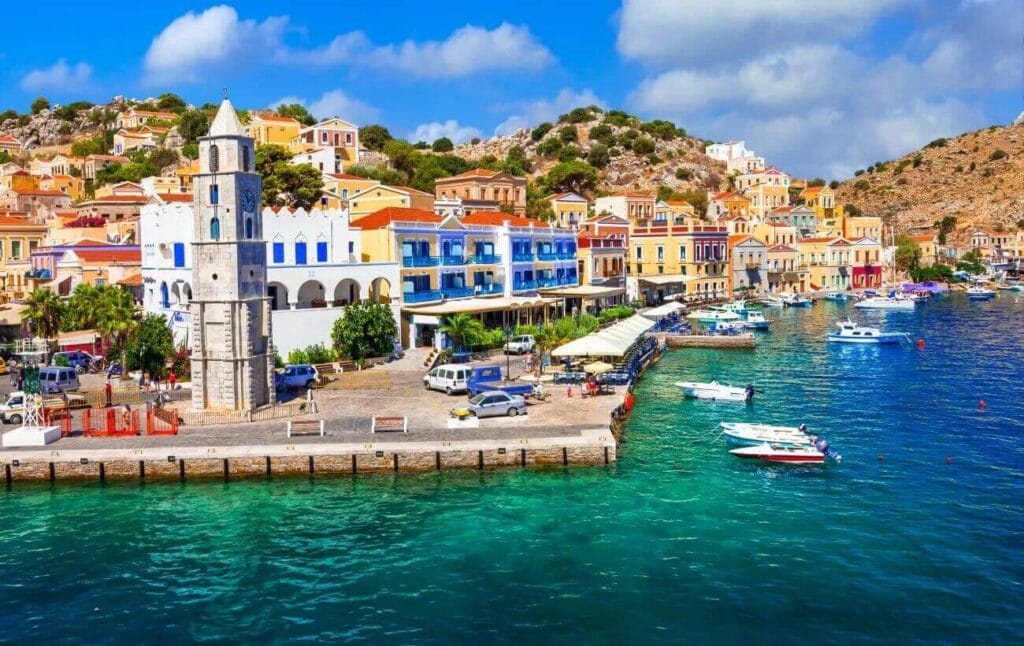When it comes to scenic holidays, turkey coastal towns are among the most charming and diverse destinations in the world.
With thousands of kilometers of shoreline along the Aegean and Mediterranean seas, Turkey offers a rich tapestry of fishing villages, turquoise coves, ancient ruins, and vibrant local cultures.
While many tourists flock to large resorts and famous beaches, those looking for tranquility and authenticity often find themselves drawn to the country’s lesser-known coastal towns.
These towns reflect the true rhythm of life on the Turkish coastline. Narrow streets, whitewashed houses, family-run guesthouses, and waterfront cafes create an atmosphere that’s both peaceful and inviting.
Whether you’re traveling solo, as a couple, or with family, these destinations offer a timeless connection to nature and culture.
Unlike the high-rise hotels and bustling nightlife of bigger tourist hubs, turkey coastal towns are all about simplicity. Time seems to move slower here, allowing you to fully unwind and reconnect with your surroundings.
In this guide, we’ll explore the most peaceful coastal towns in Turkey, highlight their distinctive characteristics, and offer travel tips to help you experience their magic for yourself.
Turkey Coastal Towns Worth Visiting For A Peaceful Escape
If serenity is what you seek, there’s no shortage of turkey coastal towns that offer an escape from noise and crowds. These towns are perfect for travelers looking for a slower pace, natural beauty, and authentic Turkish culture.
One of the most beloved spots is Akyaka, located in Muğla province along the Aegean coast. Akyaka blends pine forests, river kayaking, and a protected coastline that attracts nature lovers and kite surfers alike. With its traditional Ula-style architecture, it’s an excellent choice for those who appreciate design and heritage.
Another gem is Bozburun, a small harbor town southwest of Marmaris. Known for its wooden yacht craftsmanship, Bozburun is far less commercialized than its neighbor. Its quiet bays, modest hotels, and crystal-clear waters make it ideal for sailing enthusiasts and romantics.
Datça is also a top pick among peaceful turkey coastal towns. Located on a rugged peninsula, Datça offers access to ancient ruins, secluded beaches, and olive-covered hillsides. It’s particularly popular with artists, writers, and nature lovers who value solitude.
For those seeking an island experience, Gökçeada and Bozcaada—Turkey’s Aegean islands—offer a unique blend of Greek-Turkish culture, windsurfing beaches, and slow living. These islands are reachable by ferry and are free from the overdevelopment seen elsewhere.
What To Expect From A Typical Coastal Town In Turkey
Each of the turkey coastal towns has its own unique personality, but many share certain common features that give them their distinctive charm. From architecture and local hospitality to the rhythm of daily life, these elements combine to create an unforgettable atmosphere.
You can expect cobblestone streets lined with olive trees and bougainvillea. Most towns are built around a small harbor or central square, where markets and cafes bustle in the morning and mellow out as the sun sets.
In the evenings, locals gather at tea gardens or by the seaside to chat, play backgammon, and enjoy the cool breeze.
Lodging in these towns usually consists of boutique hotels, family-run pensions, or restored stone houses. These accommodations often offer a more intimate and personalized experience than large hotel chains.
The sense of community is also stronger in turkey coastal towns. Visitors are welcomed with warm hospitality, and it’s not uncommon to be invited for a cup of Turkish tea or homemade meze by locals. This personal connection enhances the travel experience and creates lasting memories.
Daily activities tend to revolve around the natural surroundings: swimming in calm bays, hiking coastal paths, exploring ancient ruins, or simply lying in a hammock. You’re more likely to hear waves and birds than honking horns.
Turkey Coastal Towns That Remain Untouched By Mass Tourism
One of the most appealing aspects of turkey coastal towns is how many of them remain untouched by commercial tourism. These hidden gems offer a rare sense of authenticity, ideal for travelers wanting to escape the mainstream vacation circuit.
Mazı is a perfect example. Located close to Bodrum, this small village somehow manages to keep its traditional lifestyle intact. Here, fishing and farming still dominate daily life, and most visitors stay in basic yet cozy guesthouses by the sea.
Another secluded treasure is Adrasan, situated near Antalya but a world away from the city’s resort atmosphere. Adrasan features a long pebbled beach, forested trails, and access to the famous Lycian Way hiking route. With no large resorts or noisy bars, it remains a paradise for eco-travelers.
Selimiye, another village near Marmaris, is often described as a “hidden haven.” The waterfront here is dotted with wooden piers where locals and visitors dine on fresh seafood while watching the sun set over the hills. The absence of chain restaurants or tour groups makes Selimiye a refreshing destination.
Even within more famous areas, there are pockets of peace. In Kaş, for example, you can take a short drive to find Çukurbağ, a hillside village with sweeping sea views and almost no tourist traffic.
These places prove that turkey coastal towns can still preserve their identity, charm, and calmness in the face of growing tourism.
Local Cuisine And Culture Along The Turkish Coastline
The culinary experience in turkey coastal towns is as rich as the scenery. Here, you’ll discover regional specialties that highlight the freshness of the Aegean and Mediterranean. Meals are often centered around seafood, olive oil, herbs, and seasonal vegetables.
In Foça and Ayvalık, you’ll encounter dishes like “papalina” (fried sardines), “zeytinyağlı enginar” (artichokes in olive oil), and “fava” (mashed broad beans). These are typically served as part of a meze spread alongside raki, Turkey’s traditional anise-flavored spirit.
On the Mediterranean coast, places like Kalkan and Kaş boast waterfront restaurants offering calamari, grilled octopus, and sea bass caught fresh that day. The flavors are simple but deeply satisfying, often seasoned with lemon, garlic, and rosemary.
Village breakfasts are a highlight, usually including fresh tomatoes, cucumbers, olives, cheeses, honey, and warm bread served with Turkish tea. It’s common to dine al fresco under grapevine canopies or by the water’s edge.
Beyond the food, local festivals and cultural events add depth to your experience. Many turkey coastal towns host summer concerts, art exhibitions, and seafood festivals that celebrate their heritage. These events allow travelers to connect more deeply with the traditions and rhythms of coastal life.
Turkey Coastal Towns: How To Get There And Where To Stay
Reaching the best turkey coastal towns can require a bit of effort, but it’s well worth it. While some towns are accessible by public transport, others are more remote and best reached by rental car or local minibus.
From Istanbul or Ankara, many travelers first fly to Izmir, Bodrum, Dalaman, or Antalya. From these regional airports, rental cars or shuttle buses take visitors to nearby towns like Akyaka, Datça, or Kaş. Ferry services also connect the mainland to island towns like Bozcaada and Gökçeada.
Accommodation in these areas is often part of the charm. Instead of international hotel chains, you’ll find stone guesthouses, boutique hotels, and family-run pensions.
These places emphasize comfort, authenticity, and personal attention. Many offer balconies with sea views, home-cooked breakfasts, and even private beach access.
Camping is also an option, particularly in places like Adrasan and Kabak Valley. These areas cater to backpackers and eco-tourists with wooden bungalows, treehouses, and beachfront tents surrounded by nature.
If you’re planning to explore multiple turkey coastal towns, consider renting a car to navigate the scenic coastal roads at your own pace. Many routes—especially between Fethiye, Marmaris, and Bodrum—are filled with beautiful viewpoints and secret beaches.
Timing matters too. For quieter experiences, consider visiting in May, June, September, or early October when the weather is still pleasant but the summer crowds have diminished.
See you in the next post,
Anil UZUN


